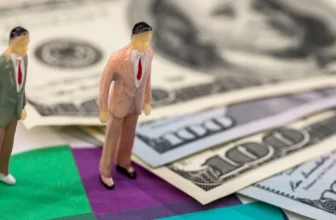
You work hard. Really hard.
You’re up before sunrise. You answer emails at dinner. You skip lunch breaks. You work weekends.
And somehow, you’re still broke.
Your bank account appears to have remained unchanged for five years. Maybe worse. You can’t remember the last time you didn’t worry about money before buying groceries.
Here’s the thing: it’s not about working harder. You already work hard enough.
This article shows you exactly why your money disappears. No fluff. No generic advice. Just the brutal truth about what’s keeping you broke, backed by real data from 2025.
Let’s fix this.
1. You’re Working Hard But Moving Backwards

You put in 50+ hours every week. You’re exhausted. But your paycheck doesn’t seem to go any further than it did three years ago.
That’s because it doesn’t.
Consumer prices jumped 24.6 percent between August 2020 and August 2025. Your rent? Up 20 percent or more in most cities. Your groceries? Up 25 percent. Gas, insurance, utilities—everything costs more.
But your paycheck? It barely moved.
Real wages have stayed flat since the early 2000s, while housing costs doubled in major cities. You’re not imagining it. The math doesn’t work anymore.
Here’s what this looks like in real life. You made $50,000 in 2020. You got a 3 percent raise each year. Now you make $57,964 in 2025. Sounds good, right?
Wrong.
That $50,000 in 2020 needs to be $62,300 in 2025 just to buy the same stuff. You’re actually making $4,336 less than you were five years ago. And you’re working more hours.
More than 84 percent of desk workers now work overtime, and 68 percent work weekends. You’re doing more and earning less.
What to do about it: Stop thinking that more hours equals more money. Start thinking about what your time actually earns. Calculate your real hourly rate. Include commute time, unpaid overtime, and extra hours. If that number scares you, good. Now you can fix it.
2. Your Raises Keep Disappearing Into Thin Air
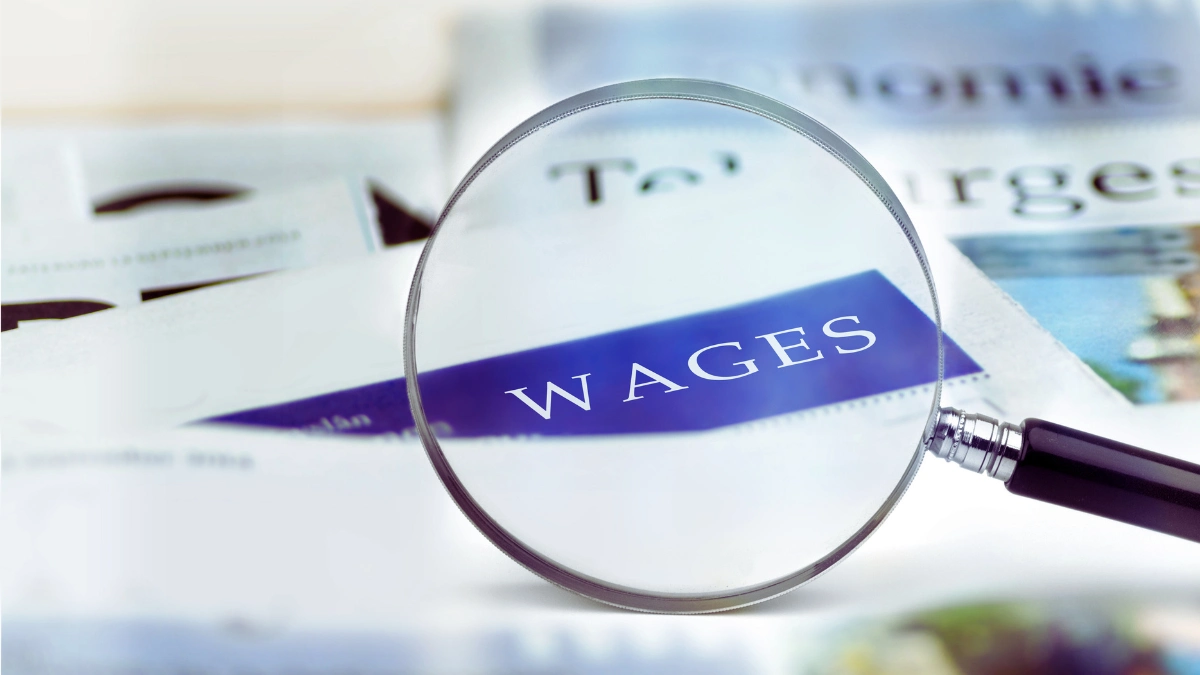
You got a raise last year. Finally. You were excited for about two weeks.
Then your money situation felt the same. Maybe worse.
This is called lifestyle inflation. And it’s killing you.
Lifestyle creep happens when your spending rises as fast as your income, turning yesterday’s treats into today’s necessities. You start buying the fancy coffee because you “deserve it.” You move to a nicer apartment. You finance a newer car.
Here’s the crazy part: half of all people making over $100,000 per year live paycheck to paycheck. Read that again. Six figures. Still broke.
The problem isn’t your income. It’s what happens to your income.
You made $50,000. You moved from a $900 apartment to a $1,200 apartment. You bought a $5 latte instead of making coffee at home. You added Netflix, then Hulu, then Disney+, then HBO Max. Small stuff, right?
Let’s do the math. Your rent went up $300. Your coffee habit costs $150 per month. Four streaming services cost $60. That’s $510 gone before you even notice.
You got a $200 monthly raise. You now spend $510 more per month. You’re $310 deeper in the hole.
What to do about it: Pick one upgrade per raise. Got a 5 percent bump? Put 4 percent straight into savings before you see it. Let yourself enjoy 1 percent. The other 4 percent disappears automatically, so you can’t spend it.
3. Nobody Taught You How Money Actually Works
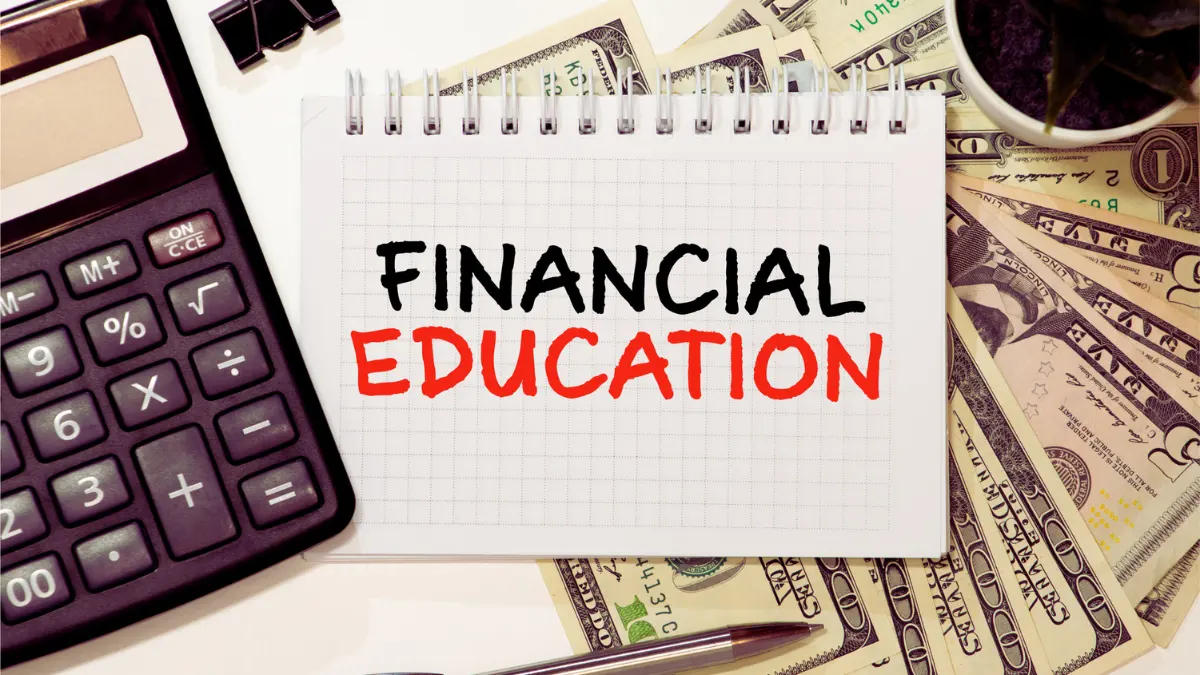
Quick test. What’s compound interest? How do tax brackets work? What’s an index fund?
If you’re not sure, you’re not alone. And it’s costing you thousands.
A 2025 study by the TIAA Institute and Stanford University’s Global Financial Literacy Excellence Center found that Americans correctly answered only 49 percent of basic financial questions. That’s an F on a test that controls your entire life.
The lack of financial knowledge cost Americans $388 billion in 2023. That’s $388,000,000,000 lost because people didn’t know how money works.
Want to know the worst part? Only 21 states require students to learn about personal finance in high school. You were supposed to figure it out yourself.
Here’s what happens when you don’t understand money. You keep $10,000 in a savings account earning 0.5 percent interest. You think you’re being smart. You’re actually losing money every year because inflation runs at 3 percent.
You don’t know that credit card debt at 22 percent interest destroys wealth faster than anything else. You don’t know that your employer matches 401 (k) contributions—free money you’re not taking.
You don’t know because nobody taught you.
Only 58 percent of Americans understand debt and borrowing. Just 35 percent can answer basic questions about financial risk.
What to do about it: Spend 20 minutes per week learning. Watch one YouTube video about investing. Read one article about taxes. Listen to one podcast about money. In three months, you’ll know more than 80 percent of people. In a year, you’ll see why you stayed broke for so long.
4. You’re Paying for Stuff You Forgot You Bought

Open your bank statement right now. Look at all the charges from last month.
See charges you don’t recognize? Welcome to the subscription trap.
People guess they spend $86 per month on subscriptions. When they actually check, the real number is $219. That’s $133 more than they thought. Every single month.
Do the yearly math. That’s $1,596 disappearing, and you didn’t even notice.
The average person has 2.8 active subscriptions. But 54.9 percent have at least one subscription they’re paying for and not using. You’re literally paying for nothing.
Here’s how it happens. You sign up for a free trial. You forgot to cancel. Now it’s $9.99 per month forever. You add another one. Then another. Seventy-two percent of people set subscriptions to auto-pay, so you never think about them again.
Let me guess what you’re paying for: Netflix. Hulu. Disney+. Amazon Prime. Spotify. A gym you haven’t visited in four months. That meditation app you used twice. Cloud storage for photos you’ll never look at. A meal kit service. A productivity app.
Each one is “only” $10 or $15. But ten of them are $100 to $150. Every month. That’s $1,200 to $1,800 per year.
What to do about it: Check your last three bank statements. Highlight every subscription. Cancel anything you haven’t used in 60 days. Right now. Don’t wait. Go do it before you keep reading.
5. Hidden Fees Are Stealing Your Money While You Sleep

You bought concert tickets for $60. Cool. Except at checkout, they cost $87. What happened?
Junk fees happened.
Americans spend $65 billion every year on hidden fees. That’s not money you planned to spend. It’s money companies sneak onto your bill.
Your bank hits you the hardest. Banks made over $15 billion just from overdraft fees in 2019. Each overdraft costs you $30 to $35. You bought a $4 coffee. Your account was $2 short. Now that coffee costs you $39.
The average person pays $167.40 per year just to have a checking account. You’re paying them to hold your money.
Then there’s your credit card. Americans paid $12 billion in late payment fees in 2020. One day late? That’s $35 or $40 gone.
Concert tickets add “service fees.” Hotels add “resort fees.” Your phone bill has “regulatory recovery fees” that aren’t actually required by law. Food delivery adds three different fees before you even tip.
A $15 burger becomes $27. A $100 hotel room becomes $145. A $50 ticket becomes $73.
What to do about it: Switch to a bank with no fees. Plenty exist. Set up automatic payments so you’re never late. Read the full price before making a purchase. If you see junk fees, call and ask them to remove them. Sometimes they will.
6. You Have Zero Safety Net
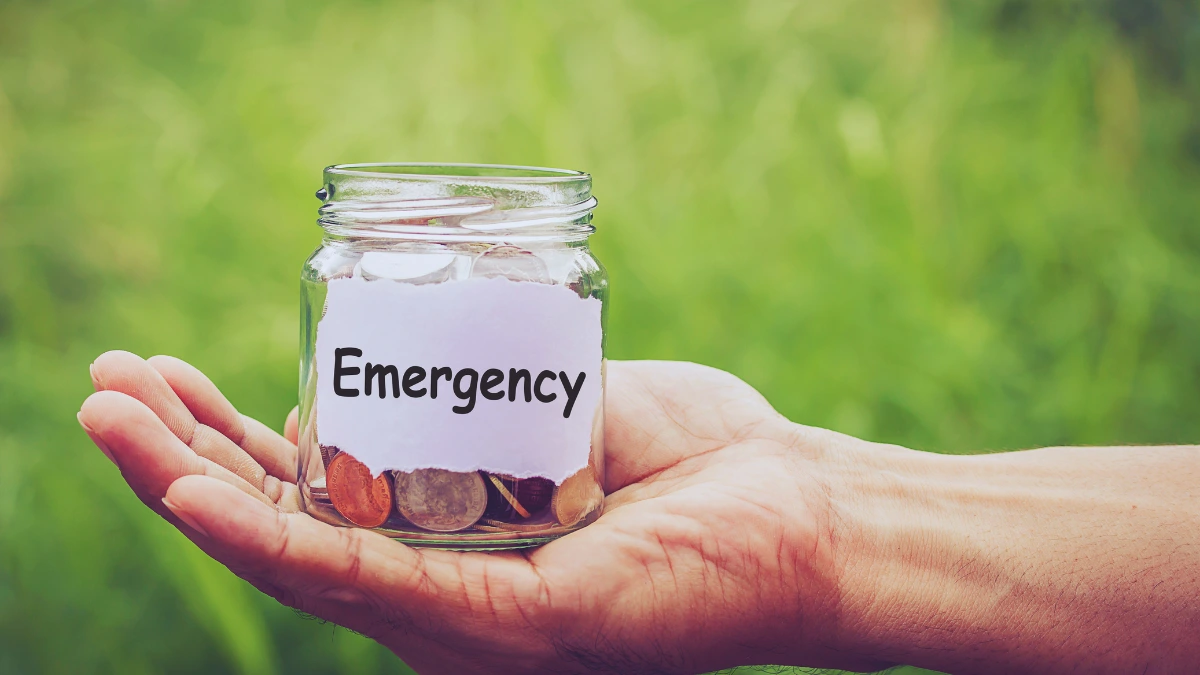
Your car breaks down. The repair costs $800. How do you pay for it?
If your answer is “credit card,” you’re in trouble.
Forty percent of Americans can’t cover a $1,000 emergency without using a credit card or borrowing money. Thirty-seven percent can’t handle a $400 surprise expense.
Here’s why this keeps you broke. You have no emergency fund. Life happens. Car breaks. The kid gets sick. Water heater dies. You don’t have cash. So you use your credit card.
Now you owe $800 at 22 percent interest. If you pay $50 per month, you’ll pay $1,100 total. That emergency just cost you an extra $300. And it takes 22 months to pay off.
The next emergency happens before you finish paying for the last one. Now you’re $2,000 in debt. Then $3,500. Then $6,000. The interest alone costs you $110 per month.
You’re broke because emergencies keep happening, and you keep going deeper into debt to handle them.
What to do about it: Save $1,000 as fast as possible. Not “when you can.” Now. Sell stuff. Work overtime for one month. Skip restaurants. Do whatever it takes. Put that $1,000 in a separate account and don’t touch it unless your car breaks down or your kid needs a doctor. Once you have it, build it to $2,000. Then $5,000. Baby steps.
7. You’re Trading Time for Money Like It’s 1950

You have 24 hours in a day. You sleep for 8. That leaves 16 hours to make money.
If you make $25 per hour and work 8 hours, you earn $200. That’s your ceiling. Even if you work 12 hours, you only make $300.
You can’t get richer by working more hours. The math doesn’t work.
But you keep trying. You pick up extra shifts. You work weekends. You say yes to overtime. You’re exhausted and barely making more money.
Here’s what rich people figured out that you haven’t. They stopped trading time for money. They found ways to earn while they sleep.
That sounds like hype. It’s not. It’s just math.
You can work 40 hours per week forever and make the same amount. Or you can build something that makes money without you. Investments. Rental income. A website. A product. Something that pays you more than once.
You work for one hour. You get paid one time. That’s linear income. It maxes out fast.
You work one month building something. It pays you every month for years. That’s scalable income. It has no ceiling.
What to do about it: Keep your job. But spend 5 hours per week building something else. Learn a skill people pay for. Start a side project. Invest money that earns money. Stop thinking about dollars per hour. Start thinking about dollars per effort.
8. The Tax System Takes More From You Than Anyone Else
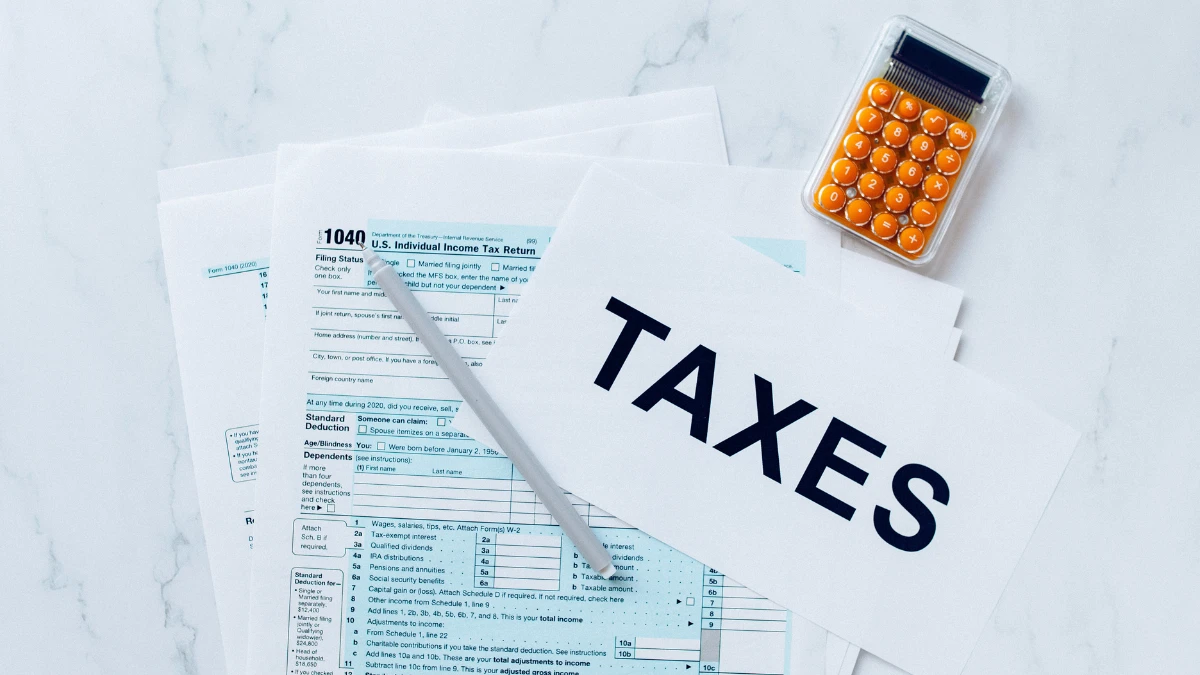
You work for a company. You’re a W-2 employee. The government takes 25 to 30 percent of your money before you ever see it.
Meanwhile, business owners and investors pay 15 percent. Sometimes less. Sometimes zero.
You’re playing a game where the rules favor everyone except you.
Here’s what makes it worse. You don’t know the rules. You don’t take deductions you qualify for. You don’t use tax-advantaged accounts. You don’t understand tax brackets.
Most people think a raise bumps all their income to a higher tax rate. It doesn’t. Only the extra money gets taxed higher rate. But because you don’t know this, you turn down raises or don’t negotiate harder.
You’re not contributing to a 401k because you “can’t afford it.” But 401 (k) contributions reduce your taxable income. If you make $50,000 and put $5,000 in your 401k, you only pay taxes on $45,000. You save $1,250 in taxes. The $5,000 costs you $3,750.
You’re getting a $3,000 tax refund every year and thinking you won. You didn’t win. You gave the government a free loan for 12 months. That’s $250 per month you could have been saving or investing.
What to do about it: Max out your 401k match if your employer offers one. That’s free money. Open a Roth IRA. Contribute to an HSA if you have a high-deductible health plan. Adjust your W-4 so you break even on taxes instead of getting a refund. If you freelance or have a side business, track every expense. Everything is probably deductible.
9. You Keep Waiting for the “Right Time” to Start

You’ll start saving when you make more money. You’ll invest when you understand it better. You’ll build an emergency fund after you pay off debt. You’ll learn about money when you have time.
That day never comes.
The TIAA Institute study found that people who set financial goals actually achieve them. Want to know why? They wait for perfect conditions.
Here’s what happens while you wait. Time passes. Your money sits in a checking account, earning nothing. The stock market goes up 10 percent per year without you. Compound interest works for everyone else.
Every year you wait to invest costs you thousands in future money. If you invest $200 per month starting at age 25, you’ll have $570,000 at age 65 (assuming 8 percent returns). If you wait until age 35, you only have $245,000. Waiting ten years costs you $325,000.
But you’re waiting because it doesn’t feel like the right time. You want to understand everything first. You want a bigger paycheck first. You want to pay off debt first.
Meanwhile, you’re spending $200 per month on stuff you won’t remember next year. The money is there. You’re just using it wrong.
What to do about it: Start today with $1. Not $100. Not $1,000. One dollar. Open an investment account. Buy one share of an index fund. You just became an investor. Tomorrow, save $2. Do something small every single day. Action builds momentum. Waiting builds nothing.
10. You’re Trying to Keep Up With People Who Are Broke Too

Your coworker just bought a new BMW. Your friend went to Bali. Your cousin posted photos from their new house.
You feel broke. You feel behind. So you spend money to catch up.
Here’s the secret nobody tells you. Most of those people are drowning in debt.
Many people look wealthy on the outside but carry massive debt behind the scenes. That BMW? Probably a lease. The Bali trip? Credit card. The house? They’re one missed paycheck from foreclosure.
Social media shows you everyone’s highlight reel. You compare it to your real life. You lose every time.
So you finance things you can’t afford. You take vacations you pay for over the next two years. You buy stuff to prove you’re doing fine.
You’re not keeping up with successful people. You’re keeping up with broke people who look successful. And it’s making you broke.
That influencer with the perfect life? They’re in credit card debt. The guy with the fancy watch? He’s got $40,000 in car loans. The family with the big house? They fight about money every week.
Looking rich and being rich are different things. Looking rich means spending every dollar on stuff people see. Being rich means having money that people don’t see.
What to do about it: Delete social media apps for 30 days. See how you feel about money without the constant comparison. Stop financing things to impress people. Buy what you can afford today, not what you hope to afford tomorrow.
11. You Have No Idea Where Your Money Actually Goes

Ask yourself right now: where did $500 go last month?
You can’t answer that. Nobody can. And that’s exactly why you’re broke.
Eighty-four percent of people who have a budget still overspend. Know why? They’re not really tracking. They’re guessing.
You know your big bills. Rent. Car payment. Insurance. But it’s not the big stuff killing you. It’s the invisible spending.
$12 for lunch. $8 for coffee and a muffin. $15 for drinks after work. $30 for takeout because you’re too tired to cook. $40 at Target for “just a few things.” $20 at the gas station for snacks.
Each thing is small. But small things happen every day.
Let’s add it up. Five work lunches at $12 each. That’s $60. Coffee and breakfast three times per week. That’s $96 per month. Takeout twice per week. That’s $120. One Target run per week. That’s $120. Gas station stops add $80.
You just spent $476 on stuff you barely remember. That’s money that could be in savings. It’s gone instead.
You’re not broke because you don’t make enough. You’re broke because money leaks out in $10 and $20 purchases you forget about.
What to do about it: Track every single dollar for 30 days. Use an app or a notebook. Write down every purchase. Coffee. Gum. Apps. Everything. At the end of the month, add it up by category. You’ll be shocked. Then you’ll know exactly what to fix.
12. You’re Not Betting on Your Future Self

Fifty-two percent of Americans live paycheck to paycheck. Thirty-nine percent aren’t saving anything for retirement.
That means 4 out of 10 people will be broke when they’re old. Maybe that includes you.
You’re not contributing to your 401 (k) because you need the money now. You’re not investing because you don’t understand it. You’re not learning new skills because you’re too tired.
Here’s what that means. In 30 years, you’ll still be working. You’ll still be broke. Except you’ll be older, more tired, and have fewer options.
Your paycheck today is your floor. Your investments are your ceiling. If you only rely on your paycheck, you’ll never do better than you’re doing right now.
Every dollar you invest today turns into multiple dollars later. Invest $5,000 per year from age 25 to 65. At 8 percent returns, you’ll have $1.4 million. That’s $200,000 of your money turning into $1.4 million.
Don’t invest? You’ll have nothing. You’ll work until you die or live on whatever Social Security gives you (spoiler: it’s not enough).
You’re choosing right now between future wealth and current comfort. Every time you skip investing to buy something you’ll forget about, you’re choosing to be broke later.
What to do about it: Contribute enough to get your full 401k match. That’s usually 3 to 6 percent of your paycheck. If your company matches 3 percent and you contribute 3 percent, that’s 6 percent going to your future. You’ll barely notice the $150 or $200 less per paycheck. Future, you will notice the $500,000 more at retirement.
What You Do Next Actually Matters

You just read 12 reasons you’re broke despite working your ass off.
Here’s the truth: knowing why doesn’t change anything. Action does.
Pick one thing from this article. Just one. Do it today.
Cancel one subscription. Open a savings account and put in $10. Track your spending for 24 hours. Read one article about investing. Contribute 1 percent to your 401k.
One action. Right now.
Tomorrow, do another small thing. In 30 days, you’ll have done 30 things. That’s 30 more things than you did last month.
You’re not broke because you’re lazy. You’re broke because the system is broken, and nobody taught you how to fix it. But now you know. And knowing plus action equals change.
Your future self is watching you right now. What are you going to do for them?
Start small. Start today. Start now.
The brutal truth? You’ll probably still be broke next year if you don’t change anything. But you won’t be broke in five years if you start today.
The choice is yours.





